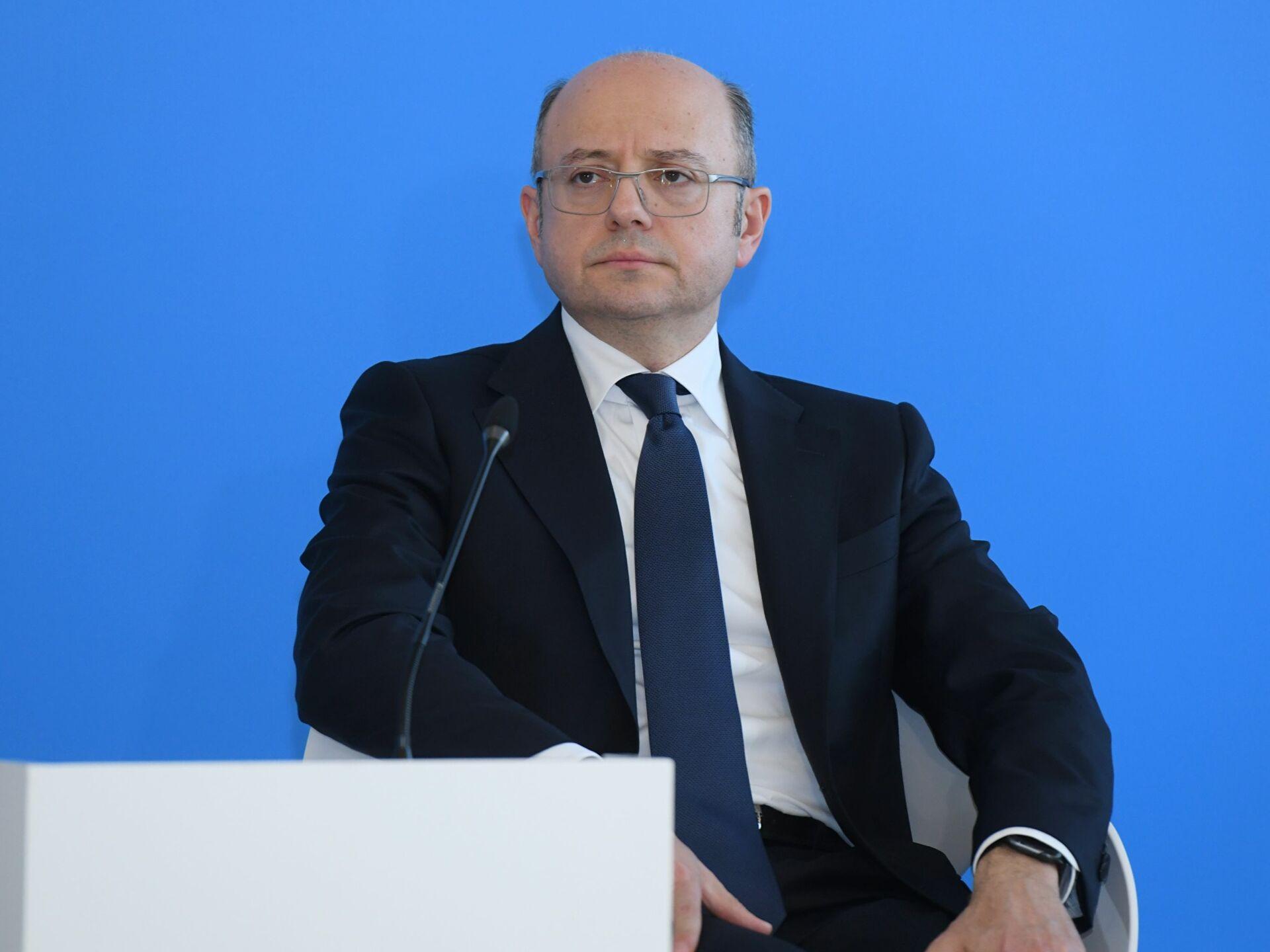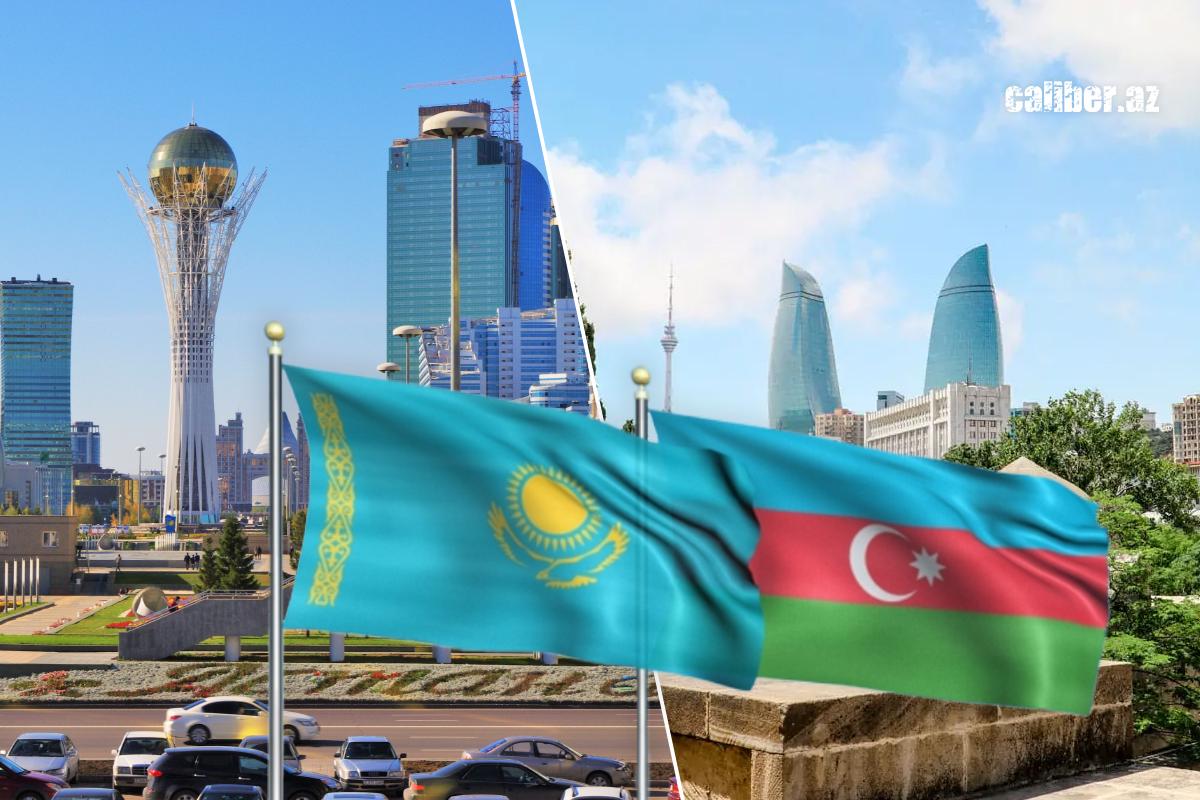Impressive cooperation plans unite Baku and Astana on the Turkic path Aiming for $1 billion trade milestone
Baku and Astana, which have long enjoyed successful cooperation in transport and oil, have recently set the goal of boosting trade and diversifying business relations by expanding non-oil joint ventures. Over the past two years, these priority trends were addressed in numerous governmental and head-of-state forums and negotiations. The 20th session of the Joint Governmental Committee on Trade and Economic Cooperation between Azerbaijan and Kazakhstan, which began the previous day in Astana, was no exception. Azerbaijan is represented at the JIC by a delegation under the leadership of Parviz Shahbazov, co-chairman of the commission and head of the Ministry of Energy of the Republic of Azerbaijan.
Business relations between Azerbaijan and Kazakhstan, which have been actively growing throughout the years of independence, reached a qualitatively new level in August 2022, after the signing of the Statement "On Deepening of Cooperation and Strategic Partnership" and the adoption of the Comprehensive Development Programme of Cooperation for 2022-2026. Since then, trade and economic cooperation between the two countries has gained further momentum and projects in various areas of the non-oil sector have been carried out.
The 20th meeting of the Joint Intergovernmental Commission on Trade and Economic Cooperation between Azerbaijan and Kazakhstan, held the day before in Astana, serves the same purpose. According to information provided to Caliber.Az by the press service of the Azerbaijani Ministry of Energy, before the meeting, within the framework of bilateral negotiations, Azerbaijani Energy Minister Parviz Shahbazov and Kazakh Transport Minister Marat Karabayev discussed the steps taken to strengthen bilateral cooperation, including aspects of expanding the nomenclature of export-import goods, development of priority projects in the energy, investment, transport and logistics spheres. Following the IGC meeting, the delegations considered a multi-faceted agenda of cooperation in industry, construction, agriculture, tourism, and ecology, as well as joint efforts in food security, space activities, digitalisation, etc.
"Relations between our countries have risen to the allied level and become comprehensive thanks to the political will of the Presidents of Azerbaijan and Kazakhstan - Ilham Aliyev and Kassym-Jomart Tokayev. The support of trade and economic partnership by the Comprehensive Programme and other important documents, the start of transit of Kazakh oil through the territory of Azerbaijan, the efforts of our countries to effectively use the opportunities of the Middle Corridor, the active work on laying a fibre-optic communication line on the bottom of the Caspian Sea, as well as the efforts to create an energy corridor from Central Asia to Azerbaijan for the export of green energy to Europe, show that our countries are determined to develop bilateral multidirectional relations between the two countries," Azerbaijani Energy Minister Shahbazov said addressing the IGC's meeting.

Today, the transit of Kazakh oil through Azerbaijan, which resumed in the spring of last year, and steps to unite the transport and logistics infrastructure of the two countries in order to take full advantage of the opportunities of the Middle Corridor are the key factors that are bringing Azerbaijani-Kazakh business relations to a whole new level.
For example, JSC NC KazMunayGas and the State Oil Company of Azerbaijan (SOCAR) signed an agreement in early 2023 to transport over one million tonnes of Kazakh oil through the Baku-Tbilisi-Ceyhan (BTC) pipeline system. Transhipment began in April last year and each month Azerbaijan has received 12 to 14 tankers of oil: the majority - 1.057 million tonnes - is crude from the Tengiz field. According to KazTransOil, a total of 1.392 million tonnes of oil (Tengiz and other producers in Kazakhstan) were transhipped through BTC in 2023, 5.5 times more than in 2022. It appears that these volumes will be multiplied in the next two years: the Kazakh government plans to increase BTC transit to 1.5 million tonnes of oil in 2024 and 3 million tonnes in 2025. In addition, Astana and Baku are currently negotiating the transport of up to 3 million tonnes of Kazakh oil per year through the Baku-Supsa pipeline.
Projects aimed at unlocking the potential of the Trans-Caspian International Transport Route (TITR), which plays a crucial role in the transhipment of non-oil cargo, including containerised cargo, are an equally important strategic area of bilateral cooperation. In this regard, Astana and Baku aim to improve logistics services, create unified transport operators, modernise technical and tariff conditions, remove administrative barriers and create a closed logistics cycle. China and other Central Asian states, as well as Türkiye and EU countries, are interested in expanding the opportunities offered by the TITR route, and it's obvious that as cargo transit grows, Baku and Astana will become the main beneficiaries of joint efforts in the field of transport.
"In 2023, the volume of cargo traffic between Kazakhstan and Azerbaijan will increase by 1.5 times to 4.3 million tonnes. The volume of freight traffic along the Central Corridor increased by 65% and reached 2.8 million tonnes," said Kazakhstan's Transport Minister Marat Karabayev at the IGC meeting. The head of the Ministry of Transport also stressed the importance of the IGC meeting, which is being held ahead of Kazakh President Kassym-Jomart Tokayev's official visit to Azerbaijan on March 11-12.

In recent years, Baku and Astana have also made considerable efforts to improve trade dynamics and expand joint investment efforts. According to the Ministry of National Economy of the Republic of Kazakhstan, the volume of trade turnover between Azerbaijan and Kazakhstan amounted to $529.4 million in 2023. Exports from Kazakhstan account for a significant share of trade between the countries, including through a more than 500-fold increase in supplies of unprocessed aluminium. Last year Kazakh companies also increased supplies of oil and oil products, wheat, rails, rolled metal products, batteries, railway wagons, confectionery and pasta products, margarine, etc. in the export structure. Azerbaijan's exports are based on ferrous metal pipes and profiles, ferries and cruise ships (including those modernised in the shipyard), fresh and canned fruit and vegetables, mineral water, juices, wines and other food products. The main goal set by the leaders of Kazakhstan and Azerbaijan is to increase mutual trade turnover to $1 billion in the medium term.
The IGC meeting discussed prospects for expanding the investment component. To date, Azerbaijan has invested $211.4 million in the economy of Kazakhstan, while Kazakh investments in the domestic economy are estimated at $114 million. Over the past two decades, some 1,200 companies with Azerbaijani capital have been registered in Kazakhstan, and 210 joint ventures have been established. However, this is far from the limit and the brotherly states intend to expand investment cooperation within the framework of the Azerbaijan-Kazakhstan Business Council, the next meeting of which will be held in the near future. In particular, measures were outlined to attract Kazakh companies to the Alat Free Economic Zone (AFEZ) and to establish mutual cooperation between the AFEZ and the free economic zones of Kazakhstan. Prospects for the establishment of an Azerbaijani-Kazakh investment fund, the organisation of joint production in industrial zones and districts, the joint construction of a grain terminal in the port of Alat, cooperation in the shipbuilding sector, and the participation of Kazakh companies in business projects implemented in the liberated territories were also considered.
Accelerating the Digital Silk Road project, which envisages laying a fibre optic communication line (FOCL) along the bottom of the Caspian Sea at an estimated cost of 22.8 billion tenge, is one of the strategically important bilateral investment initiatives. Another promising direction is preparing to start the process of developing a feasibility study for the Central Asia-Europe Electricity Transmission Project, passing through Azerbaijan. It is expected that by the end of this year, a feasibility study for the Black Sea Energy project will be ready. This project envisages the laying of an energy cable under the Black Sea and the subsequent export of "green" energy from Azerbaijan to Georgia and on to Romania, Hungary and, in the long term, Bulgaria and Serbia.
Kazakhstan (as well as Uzbekistan and Turkmenistan) has expressed its willingness to join this effort, which will involve laying a power cable under the Caspian Sea in the future. There are no political obstacles to this since the Convention on the Status of the Caspian Sea, signed by the leaders of the Caspian littoral states in 2018, includes a specific clause allowing for the laying of submarine power cables. The fact that Kazakhstan is recognised as one of the leading CIS countries in the development of renewable energy sources (RES), with an installed RES capacity of over 2.7 GW, supports Kazakhstan's participation in the Black Sea Energy project. In general, Baku and Astana agreed to expand cooperation in other areas of RES and energy efficiency.
A final protocol was signed at the end of the 20th IGC meeting and agreement was reached on the holding of the 21st IGC in Baku in 2025.








